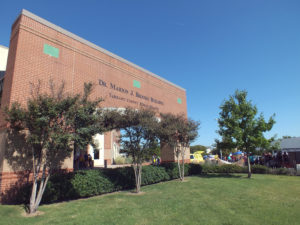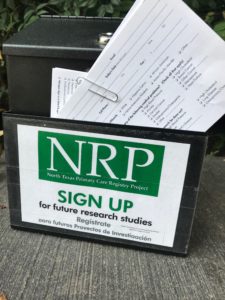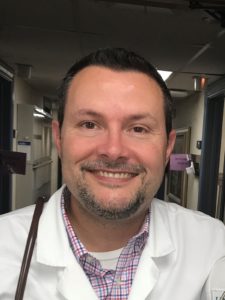NorTex 2019 Fall Newsletter
September 28, 2019 • NorTex
THE NORTEX NEWSLETTER
Tarrant County Public Health Addressing Opioid Use in Tarrant County
 In collaboration with the Centers for Disease Control and Prevention (CDC), the National Association of County and City Health Officials (NACCHO), and the New York City Department of Health and Mental Hygiene (NYCDOHMH), Tarrant County Public Health (TCPH) is exploring, planning, and implementing innovative and collaborative approaches to more accurately measure opioid use within Tarrant County as well as potential barriers to identification and treatment for those with Opioid Use Disorder. The endeavor uses a five-level social ecological model to better understand opioid use in our community and provide a framework for action. The activities to be carried out over the next year are multifaceted and include:
In collaboration with the Centers for Disease Control and Prevention (CDC), the National Association of County and City Health Officials (NACCHO), and the New York City Department of Health and Mental Hygiene (NYCDOHMH), Tarrant County Public Health (TCPH) is exploring, planning, and implementing innovative and collaborative approaches to more accurately measure opioid use within Tarrant County as well as potential barriers to identification and treatment for those with Opioid Use Disorder. The endeavor uses a five-level social ecological model to better understand opioid use in our community and provide a framework for action. The activities to be carried out over the next year are multifaceted and include:
- Preparing an inventory of activities already ongoing in Tarrant County to assess opioid use.
- Conducting a comprehensive county-specific needs assessment to identify gaps in the response.
- Developing an opioid response Community Action Plan (CAP) in collaboration with community partners and stakeholders to implement rapid assessment and response activities.
- Conducting an anti-stigma survey among specific groups dealing with the opioid crisis in Tarrant County.
- Enhancing the use of Syndromic Surveillance (SyS) to identify fatal and non-fatal overdoses presenting to hospital emergency departments in Tarrant County.
- Working with the Tarrant County Medical Examiner’s Office to identify and understand the nature of causes of overdose deaths among the population.
- Engaging with NYCDOHMH to receive technical assistance related to implementation of best practices developed in their jurisdiction.
- Sharing lessons learned during this project with other state and local health departments.
The anti-stigma survey will be administered to several specific
groups who interact with those in the community who are at risk for opioid overdoses. These include law enforcement, social services providers, and medical providers. TCPH will collaborate with UNTHSC (NorTex) to administer the anti-stigma survey among primary care providers. Additional community stakeholders involved in the project are Challenge of Tarrant County, MedStar,
MHMR of Tarrant County, the Tarrant County Sherriff’s Office, and the Tarrant County Medical Examiner’s Office.
NORTEX RESEARCH PROJECTS
FEATURED CURRENT NORTEX PROJECT
Student Led Project to Identify Perceptions of Difficulties for Pregnant Medical Students
Two second year medical students at the Texas College of Osteopathic Medicine, Andi Toufexis and Emma Tierney, are working with NorTex investigators to run a student-led
project. Medical school curriculum is rigorous, and many students face life challenges while struggling to keep up with their studies. There is little evidence, however, on how students perceive changes in medical school performance or difficulty of the curriculum when a student is pregnant. The purpose of their study is to understand the change in perceived difficulty of medical school for pregnant students and the differences in this perception between those who have and have not been pregnant during medical school. Student doctors Toufexis and Tierney along with Dr. Kim Fulda are collaborating with another student researcher and faculty member at the Edward Via College of Osteopathic Medicine (VCOM) at Auburn University, to distribute a survey at both medical schools. The survey includes 21 questions and will be distributed during the current academic year to first through fourth year medical students. The survey will be distributed by email and in person and will also capture student knowledge about services available or pregnant students at these institutions.
FEATURED COMPLETED NORTEX PROJECT
Lung Cancer Screening Practices Among Primary Care Physicians in NorTex
The U.S. Preventive Services Task Forces (USPSTF) has recommended lung cancer screening with low-dose computed tomography (LDCT) in high-risk patients since 2013; however, the number of eligible patients receiving LDCT screening is still low. To understand current implementation and barriers to LDCT screening among primary care providers, a survey was conducted among members of the North Texas Primary Care Practice-Based Research Network (NorTex), between July and November 2018. The survey included questions regarding knowledge of lung cancer screening guidelines, perceptions, practice and barriers to LDCT screening. A total of 36 primary care providers completed the survey (response rate = 18%).
Overall, 69.4% of respondents indicated that lung cancer screening with LDCT was recommended by USPSTF. 91.7% of providers believed that the LDCT is effective in reducing lung cancer mortality for high-risk patients, while only 33.3% had referred most of high risk patients for LDCT screening in the past 12 months. Common perceived barriers to LDCT included concerns regarding insurance coverage, the cost of the test, and uncertainty of the benefits of the test. Approximately 70% of primary care providers are familiar with the USPSTF guidelines for lung cancer screening, and a number of providers’ barriers to adherence to guidelines are persistent. Further study of provider-based interventions are needed to improve screening implementation.
PI: Mengua Tao, MD, PhD; Funding Source: Texas Academy of Family Physicians Foundation
TEXAS ACADEMY OF FAMILY PHYSICIANS
Promoting Greater Collaboration Among Primary Care Researchers across Texas through the Texas Academy of Family Physicians
The Texas Academy of Family Physicians (TAFP) hosts a monthly conference call to promote research in family medicine, promote the art and science of evidence-based medicine, and provide a platform for family medicine physicians to share best practices and inform members of useful resources. TAFP Member and founder of the South Texas Ambulatory Research Network (STARNet), Walter L. Calmbach, MD, MPH, has hosted these conference calls since 2017. The calls actively seek participation from interested primary care researchers from around the state. Representatives include: Baylor Scott & White Health, MD Anderson, Cook Children’s, NorTex, John Peter Smith Health Network, among others.  Each conference call begins with research opportunity announcements and introductions, and then an invited “key presenter” discusses planned or active research activities with the group. At the end of the presentation, there is an opportunity to ask questions and share the research activities others are participating in. Calls are recorded and archived for those that might want on-demand access.
Each conference call begins with research opportunity announcements and introductions, and then an invited “key presenter” discusses planned or active research activities with the group. At the end of the presentation, there is an opportunity to ask questions and share the research activities others are participating in. Calls are recorded and archived for those that might want on-demand access.
The monthly family medicine research conference calls are held every third Wednesday of the month from 12-1 p.m. There is no extra membership / sign-up required to attend section meetings or calls. All are welcome, and residents are highly encouraged to join.
JOIN THE NORTH TEXAS PRIMARY CARE REGISTRY PROJECT
The North Texas Primary Care Registry Project (NRP) was established to develop and maintain a database of individuals who may be contacted for future NorTex studies. NorTex conducts research important to primary care, public health, and the community. A large diverse database of potential study participants allows us to:
- Expand research opportunities for NorTex
- Assess the feasibility in planning for future projects
- Demonstrate an accessible participant population for research grants
- Assess the demographic distribution of patients served by NorTex member clinics, and
- Most importantly, quickly identify and recruit participants into studies
The program is simple to implement. Informational cards are available next to the ballot box which are located in the clinics’ waiting area. Patients can pick up the cards, if they are interested, when they check in for their appointment. This card explains the NRP project on one side and collects demographic and medical histories on the other side. The completed cards can be returned into the ballot box, where they will be collected and returned to NorTex to be entered into a confidential database. This information will provide NorTex researchers with the ability to contact potentially eligible participants for future projects. Currently, 10 NorTex clinics are involved, and over 1,400 patients have shown interest in the NRP. We hope to grow this database to 10,000 potential research participants.
If you are interested in signing up your clinic for the NRP, please email us at NorTex@unthsc.edu.
MEMBER HIGHLIGHT:
DAMON SCHRANZ, DO
 Dr. Damon Schranz received his Bachelors of Science degree in Biomedical Science from Texas A&M University, in 1992 and a Doctor of Osteopathic Medicine, in 1998. Following his medical school graduation, he completed his internship and residency in Family Medicine from the Osteopathic Medical Center of Texas. He was actively recruited during the last year of his residency to join the faculty of the University of North Texas Health Science Center, in Fort Worth. He joined the Department of Family Medicine as an assistant professor in 2001, completed a Faculty Development Fellowship in 2003 and the AOA Health Policy Fellowship in 2008.
Dr. Damon Schranz received his Bachelors of Science degree in Biomedical Science from Texas A&M University, in 1992 and a Doctor of Osteopathic Medicine, in 1998. Following his medical school graduation, he completed his internship and residency in Family Medicine from the Osteopathic Medical Center of Texas. He was actively recruited during the last year of his residency to join the faculty of the University of North Texas Health Science Center, in Fort Worth. He joined the Department of Family Medicine as an assistant professor in 2001, completed a Faculty Development Fellowship in 2003 and the AOA Health Policy Fellowship in 2008.
Dr. Schranz has been an integral member of the Family Medicine Department, which is ranked in the top 20 in the Nation by US News and World Report. He is Vice Chair of Education for the Department of Family Medicine, overseeing all of the education activities of the department. For the past 9 years he has taught medical students and residents in an in-patient and out-patient setting through two Family Medicine Residency Programs; one at Osteopathic Medical Center of Texas and currently at Medical City of Fort Worth. In Addition, Dr. Schranz has a dual appointment in the Graduate School of BioMedical Sciences, where he assists with the Masters of BioMedical Science Program.
Dr. Schranz has a special clinical and research interest in Health Policy. His expertise in health policy has provided him the opportunity to provide constructive feedback concerning health policy in his native state of Texas through his work with the Frew Advisory Committee and as a member of the Texas Higher Education Coordinating Board’s Family Practice Residency Advisory Committee. Dr. Schranz has published numerous papers on Health Policy, Pediatrics, and Evidence Based Medicine. Dr. Schranz is Board Certified in Family Practice and Osteopathic Manipulative Treatment by the American Osteopathic Board of Family Physicians in 1998, 2009. His current board certification will expire in 10 years.
Due to his passion and service to his profession and patients, Dr. Schranz was inducted into the AOA Mentor Hall of Fame in 2007, and was nominated for the Fort Worth Business Press’ “Top 40 under 40” award.




Social media